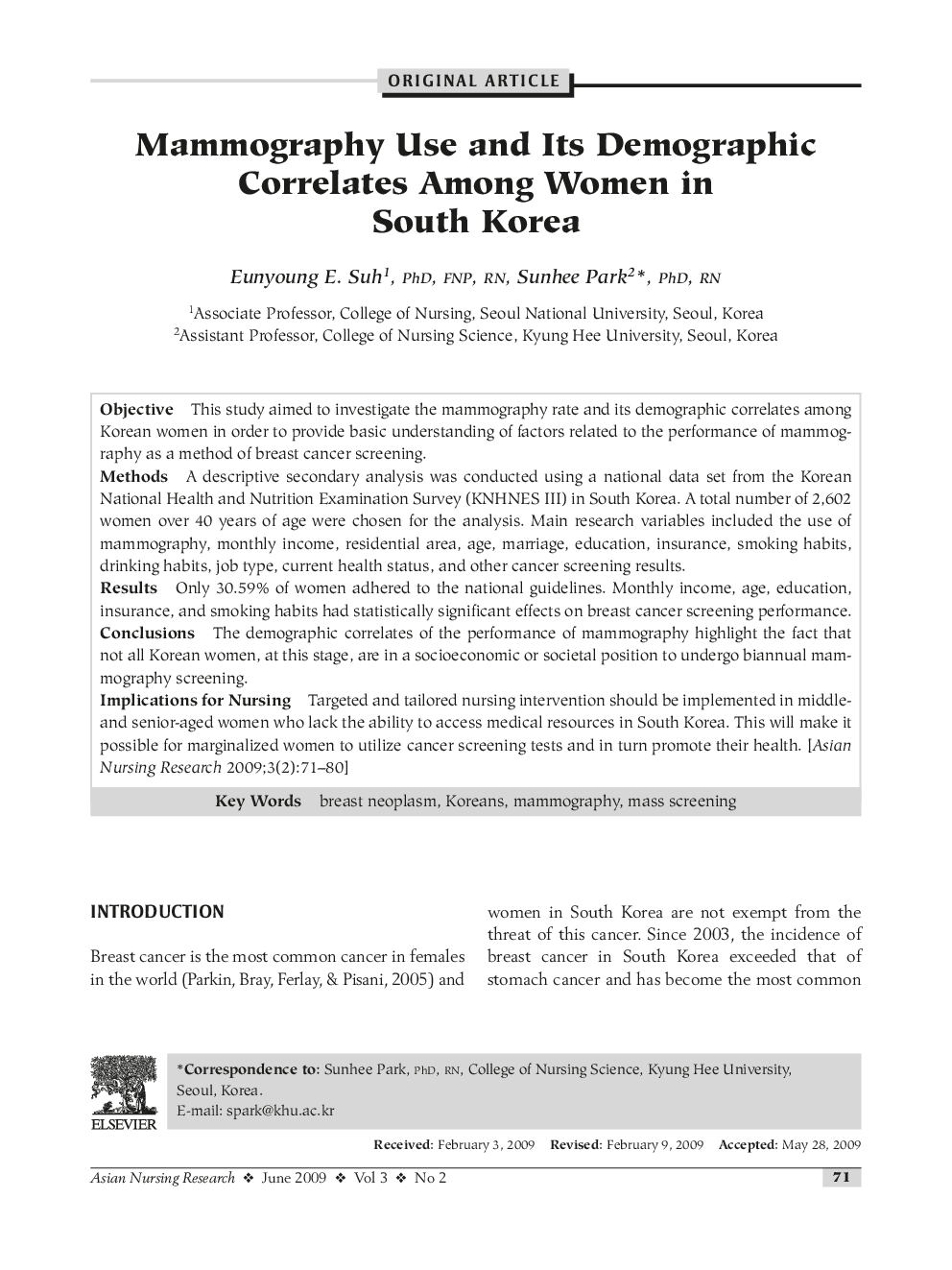| Article ID | Journal | Published Year | Pages | File Type |
|---|---|---|---|---|
| 2645205 | Asian Nursing Research | 2009 | 10 Pages |
ObjectiveThis study aimed to investigate the mammography rate and its demographic correlates among Korean women in order to provide basic understanding of factors related to the performance of mammography as a method of breast cancer screening.MethodsA descriptive secondary analysis was conducted using a national data set from the Korean National Health and Nutrition Examination Survey (KNHNES III) in South Korea. A total number of 2,602 women over 40 years of age were chosen for the analysis. Main research variables included the use of mammography, monthly income, residential area, age, marriage, education, insurance, smoking habits, drinking habits, job type, current health status, and other cancer screening results.ResultsOnly 30.59% of women adhered to the national guidelines. Monthly income, age, education, insurance, and smoking habits had statistically significant effects on breast cancer screening performance.ConclusionsThe demographic correlates of the performance of mammography highlight the fact that not all Korean women, at this stage, are in a socioeconomic or societal position to undergo biannual mammography screening.Implications for NursingTargeted and tailored nursing intervention should be implemented in middle- and senior-aged women who lack the ability to access medical resources in South Korea. This will make it possible for marginalized women to utilize cancer screening tests and in turn promote their health.
